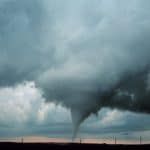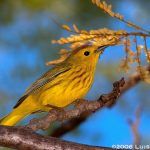The Dutch experiment with a biosecurity code of conduct
By Malcolm Dando | March 19, 2008
In recent years, scientists and security experts have advocated for codes of conduct as a means to prevent the modern life sciences from being misused for hostile purposes–the so-called dual-use problem. But how exactly would such codes work, and how would they be received by the scientific community? The implementation of a code of conduct in the Netherlands in mid-2007 serves as an example of what can be expected.
In 2002 the States Parties to the Biological and Toxin Weapons Convention (BWC) agreed to hold a series of annual meetings leading up to their 2006 Sixth Review Conference. The 2005 meetings focused on codes of conduct for life scientists and generated considerable interest, at least at the level of national academies. In 2005, for example, the InterAcademy Panel (IAP), which includes representatives from academies of science all over the world, issued a “Statement on Biosecurity” (PDF) on behalf of 68 academies. Arguing that recent scientific advances had opened up unprecedented opportunities to improve health and the environment, the IAP nevertheless added, “but some science and technology can be used for destructive purposes as well as for constructive purposes.” Scientists therefore have a special responsibility in regard to questions of dual-use.
Since 2004, I have traveled to 13 different countries to conduct biosecurity seminars with life scientists and found that the Biological Weapons Convention and the problem of dual-use aren’t known or understood.”
Members of the IAP constructed the statement as a set of principles that individual scientists and scientific communities could use as a guide if they wished to develop a code of conduct for use in their own particular situation. The statement covered five points: awareness; safety and security; education and information; accountability; and oversight. In regard to education, for example, the statement suggested, “Scientists should be aware of, disseminate, and teach the national and international law and regulations, as well as policies and principles, aimed at preventing the misuse of biological research.”
The Royal Netherlands Academy of Arts and Sciences (KNAW) serves as the IAP’s lead academy on biosecurity activities, so it is not surprising that KNAW would be on the leading edge of implementation. After the 2005 BWC meetings, the Dutch Ministry of Education, Culture and Science asked KNAW to advise the government on a national biosecurity code of conduct for scientists. The task was assigned to KNAW’s Biosecurity Working Group, which prepared an initial draft of the code in January 2007. Scientists later reviewed the code during a focus group, and then discussed it at a lively workshop in March 2007. A new draft was then presented to the focus group and working group in April and was approved by KNAW in late May 2007.
The code, which was published by KNAW as A Code of Conduct for Biosecurity in the Netherlands, covers six main issues: raising awareness; research and publication policy; accountability and oversight; internal and external communication; accessibility; and shipment and transport. It is somewhat more wide-ranging than the IAP statement but makes clear that individual organizations are responsible for tailoring “the practical implementation of the code of conduct to the needs of their institution.” Moreover, it suggests that organizations monitor compliance with the code internally. Though the system would not require a central supervisory body, the report suggests that a national biosecurity center could help coordinate activities.
Such a center could be expected to monitor developments in biosecurity and the publication of information and educational materials. The KNAW report suggests that the center could perform “regular evaluations of awareness and compliance” with the code, a critical function for its future effectiveness. Starting in 2004, I traveled to 13 different countries with University of Exeter social scientist Brian Rappert to conduct seminars on biosecurity with life scientists and found that, with rare exceptions, the BWC and the problem of dual-use are not known or understood. Thus, basic education and follow-up will be necessary to ensure success.
At the Sixth Review Conference, where codes of conduct were endorsed as a means to “strengthen the effectiveness of the convention,” States Parties to the convention decided to meet annually prior to the 2011 Seventh Review Conference. In 2008, they will consider “national, regional, and international measures to improve biosafety and biosecurity,” and “oversight, education, awareness raising, and adoption and/or development of codes of conduct.”
The Dutch experience in developing its biosecurity code of conduct should be reported to the BWC meetings in Geneva this year and evaluated along with the experiences of other States Parties. In my view, the key element of the Dutch code is the attention paid to raising awareness. For example, the Dutch code implores scientists to adapt the training of scientists at the very basic level: “Devote specific attention in the education and further training of professionals in the life sciences to the risks of biological, biomedical, biotechnological and other life sciences research and the constraints imposed by the BTWC and other regulations in that context.”
Only when we have a widely informed, and involved, scientific community will we be in a position to contribute effectively to preventing the hostile misuse of the modern life sciences.
Together, we make the world safer.
The Bulletin elevates expert voices above the noise. But as an independent nonprofit organization, our operations depend on the support of readers like you. Help us continue to deliver quality journalism that holds leaders accountable. Your support of our work at any level is important. In return, we promise our coverage will be understandable, influential, vigilant, solution-oriented, and fair-minded. Together we can make a difference.
Topics: Columnists














